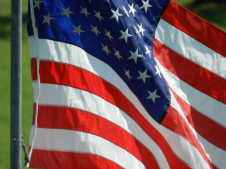British English and American English – What Is the Difference?

Posted on March 17, 2014 by Chris
If you ever forget to change your preferred language setting to ‘English (UK)’, when writing a document, then you will be only too familiar with the differences between British and American English.
They say ‘honor’, we say ‘honour’. They say ‘color’, we say ‘colour’. Your British English document will be full of red underlining and helpful suggestions about where you are going wrong. Luckily, when writing documents for an American audience, we can flick our language choice over to ‘English (US)’ and the work is done for us. But it is worth understanding the reasons for the differences nonetheless.
The Present Perfect
Grammar usage is one of the most noticeable differences between British English and American English, and nowhere is this more obvious than in the use of the Present Perfect. In British English we would say “I have already eaten”, which in American English would be “I already ate”. To a British English speaker, this is grammatically incorrect, and grates on the ear. Listen out for the different use of the Present Perfect when you are watching films, and you will be surprised how often you will hear it.
Centre or Center?
American English tends to favour phonetic spellings, which is where difference in common word spellings arises. Extra letters are dropped because of this, leading to ‘traveller’ becoming ‘traveler’, ‘realise’ becoming ‘realize’, ‘centre’ becoming ‘center’, and ‘colour’ becoming ‘color’. There is no right or wrong way to spell these words, it simply depends which form of English you are using.
Number Games
There are always infuriatingly different ways of expressing numbers and dates in different languages, and American English is no different in this regard. To a British English speaker the differences seem incredibly alien. For example, a date such as 7th April 2004 would be shortened to 07/04/04. But in the US, the same date is reordered in the shortened form to 04/07/04. It is the cause of countless misunderstandings and missed deadlines in business. When expressing numbers, American English tends to contract again, turning ‘five thousand and forty three’ into ‘five thousand forty three’. Even word pronunciations are different between the two versions of English. Americans are far more likely to say ‘thirteen hundred’ than ‘one thousand three hundred’, which would be correct in British English.
Vocabulary
There are some really delightful differences in British English and American English vocabulary. Here are just a few of the more common ones:
A Brit uses a lift, an American an elevator; the boot of a British car is known as the ‘trunk’ in America; biscuit becomes cookie, crisp becomes chip; a duvet, rather charmingly, becomes ‘comforter’ in US English; trousers become pants across the Atlantic; a pram is a baby carriage, a hair fringe becomes ‘bangs’, and a robber will ‘burglarize’ a property.
There are lists of vocabulary differences you can look at online, and you will find yourself smiling in recognition of something you’ve heard in a film, but never quite understood. Be careful with word choice when writing in American English, because there are some taboo words you may not be aware of. If in doubt, check!




